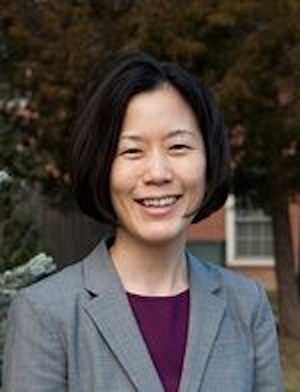
Cynthia Lum is a Professor of Criminology, Law and Society and the Director the Center for Evidence-Based Crime Policy at George Mason University.
Police use of body-worn cameras is growing rapidly in the U.S., but may not have the expected effect on the behavior of officers or citizens, or on the public’s view of the police.
According to recently published research by George Mason University’s Center for Evidenced-Base Crime Policy, the use of body cameras alone is unlikely to significantly improve police performance, accountability and relationships with citizens. Researchers examined 70 studies of body-worn cameras worn through June 2018 and found cameras reduced the number of overall complaints against officers, but their impacts on other police behaviors are less conclusive.
“Expectations and concerns surrounding body-worn cameras among police leaders and citizens have not yet been realized by and large in the ways anticipated by each,” said Cynthia Lum, a professor of criminology, law and society and the director of Mason’s Center for Evidence-Based Crime Policy who co-authored the study along with Christopher S. Koper, an associate professor of criminology, law and society.
The researchers found officers supported the use of body-worn cameras as they gained more experience with them because they believe cameras reduce frivolous complaints. The study also showed police use of body-worn cameras did not lead to de-policing, also known as a “Ferguson effect,” in which officers pull back from being productive in their duties. Cameras did not appear to discourage police contacts or officer-initiated activities or have any noticeable effect on arrest rates.
“Attention should also be paid to how the cameras can be used in police training, management and internal investigations to improve police performance, accountability and legitimacy in the community,” Koper said.
Cynthia Lum can be reached at 703-993-3421 or clum@gmu.edu.
Christopher S. Koper can be reached at 703-993-4982 or ckoper2@gmu.edu.
For more information, contact John Hollis at 703-993-8781 or jhollis2@gmu.edu.
About George Mason
George Mason University is Virginia’s largest public research university. Located near Washington, D.C., Mason enrolls 37,000 students from 130 countries and all 50 states. Mason has grown rapidly over the past half-century and is recognized for its innovation and entrepreneurship, remarkable diversity and commitment to accessibility.
